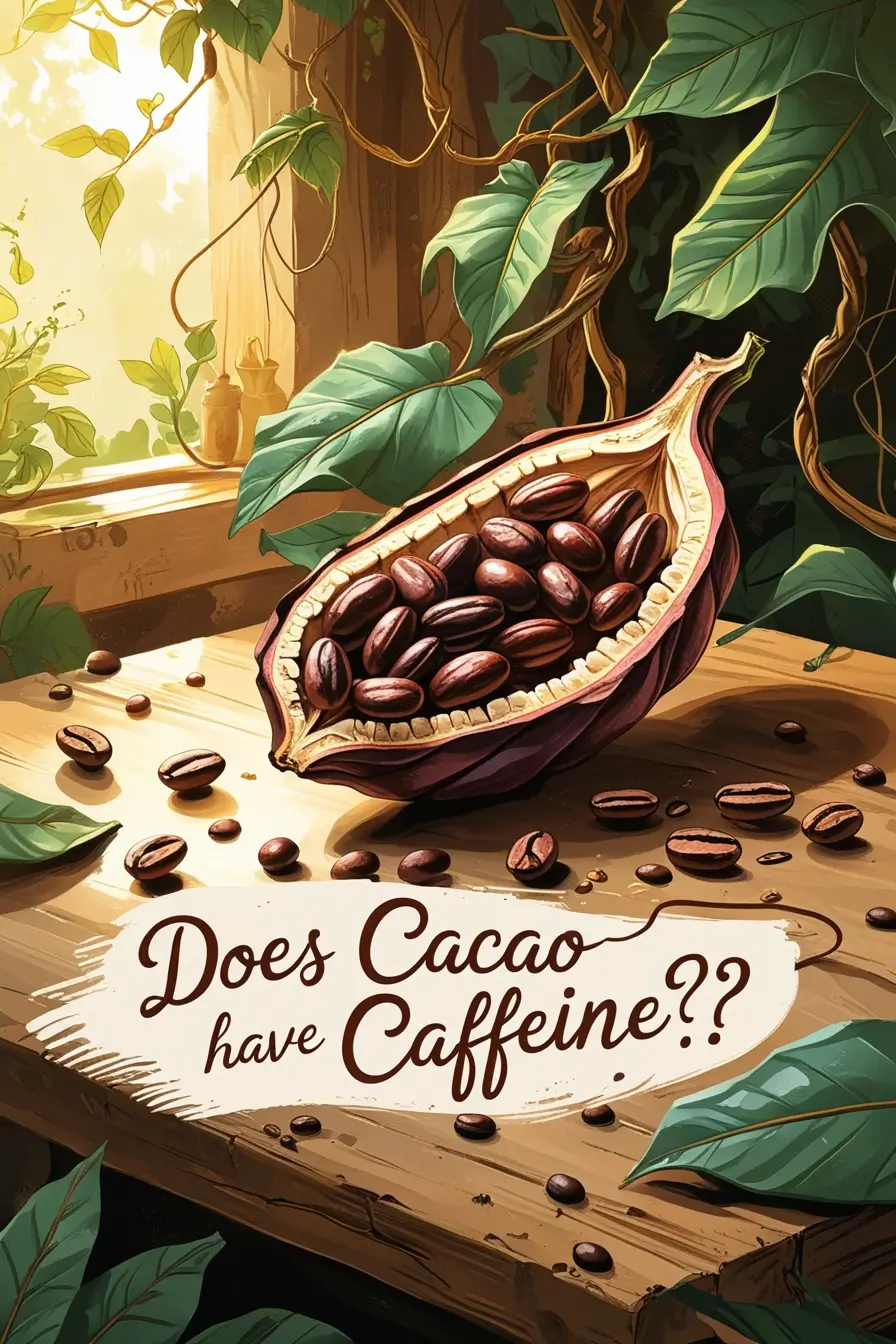Does cacao beans have caffeine Nature Energizing Superfood

Does cacao beans have caffeine? Yes, cacao beans do contain caffeine, though in smaller amounts than coffee beans. A typical cacao bean contains approximately 0.1-0.7% caffeine by weight, offering a gentle energy boost alongside its numerous health benefits. Understanding the caffeine content in cacao beans is crucial for anyone interested in natural energy sources or monitoring their caffeine intake.
The Science Behind Caffeine in Cacao Beans
Raw cacao beans, the foundation of chocolate production, naturally contain caffeine as one of their many bioactive compounds. These beans are harvested from the Theobroma cacao tree, which produces seeds rich in various stimulants. When examining whether cacao beans have caffeine, it’s important to note that they contain caffeine and theobromine, another stimulant that works synergistically with caffeine.
Caffeine Content Comparison
To put the caffeine content of cacao beans in perspective:
1. Raw cacao beans: 0.1-0.7% caffeine by weight
2. Coffee beans: 1.2-2.2% caffeine by weight
3. Tea leaves: 3-5% caffeine by weight
Understanding whether cacao beans have caffeine becomes more relevant when comparing their effects to other caffeinated foods and beverages.
The Unique Properties of Cacao Bean Stimulants
The stimulating effects of cacao beans come from more than just caffeine. The combination of compounds includes:
1. Theobromine (primary stimulant)
2. Caffeine (secondary stimulant)
3. Phenylethylamine (mood enhancer)
4. Anandamide (bliss molecule)
How Cacao’s Caffeine Affects Your Body
When people ask, “does cacao beans have caffeine?” they’re often concerned about its effects on their system. The caffeine in cacao beans works differently than coffee because of its unique combination with other compounds:
– Slower release of energy
– Longer-lasting effects
– Less likelihood of jitters
– Reduced crash effect
Health Benefits Beyond Caffeine
While the question “Does cacao beans have caffeine” is important, these remarkable seeds offer numerous other health benefits:
Antioxidant Properties
Raw cacao beans contain more antioxidants than:
– Blueberries
– Green tea
– Red wine
Mineral Content
Cacao beans are rich in:
– Magnesium
– Iron
– Zinc
– Copper
Cardiovascular Benefits
Regular consumption may help:
– Lower blood pressure
– Improve circulation
– Reduce inflammation
Processing Impact on Caffeine Content
The way cacao beans are processed affects their caffeine content. Understanding this helps answer the question “does cacao beans have caffeine” more comprehensively.
Raw vs. Roasted Cacao Beans
Raw cacao beans retain their full caffeine content, while processing can affect levels:
1. Raw beans: Maximum caffeine content
2. Light roasting: Slight reduction
3. Dark roasting: Further reduction
4. Dutch processing: Significant reduction
Consuming Cacao: Forms and Caffeine Content
Different forms of cacao products contain varying amounts of caffeine:
Raw Cacao Products
1. Whole beans
2. Nibs
3. Powder
4. Butter
Processed Chocolate Products
1. Dark chocolate
2. Milk chocolate
3. White chocolate
4. Cocoa powder
Time of Day Considerations
When considering “Does cacao beans have caffeine,” timing matters:
Best Times to Consume
1. Morning boost
2. Pre-workout
3. Afternoon pick-me-up
4. Creative sessions
Times to Avoid
1. Late evening
2. Before bedtime
3. During anxiety-prone periods
Cacao vs. Coffee: A Caffeine Comparison
Understanding whether cacao beans have caffeine leads to natural comparisons with coffee:
Energy Profile
1. Cacao: Gentle, sustained energy
2. Coffee: Quick, intense boost
Duration of Effects
1. Cacao: 4-6 hours
2. Coffee: 2-4 hours
Special Populations and Caffeine Sensitivity
When addressing “Does cacao beans have caffeine,” consider these groups:
Sensitive Individuals
1. Pregnant women
2. Children
3. Elderly
4. Anxiety-prone individuals
Athletes and Fitness Enthusiasts
1. Pre-workout benefits
2. Recovery support
3. Endurance enhancement
Sustainable Sourcing and Quality
The quality of cacao beans affects their caffeine content:
Growing Regions
1. South America
2. West Africa
3. Southeast Asia
Farming Practices
1. Organic cultivation
2. Fairtrade
3. Shade-grown
4. Sustainable harvesting
How to Choose Quality Cacao Products
When selecting cacao products, consider:
Source Indicators
1. Origin labeling
2. Certification marks
3. Processing methods
4. Company reputation
Storage Requirements
1. Temperature control
2. Humidity management
3. Light exposure
4. Air Exposure
Incorporating Cacao into Your Diet
Understanding that cacao beans have caffeine helps in planning consumption:
Dietary Integration
1. Morning smoothies
2. Afternoon snacks
3. Pre-workout fuel
4. Recipe incorporation
Serving Suggestions
1. Raw consumption
2. Beverage addition
3. Baking incorporation
4. Snack combinations
Potential Side Effects and Considerations
While examining “Does cacao beans have caffeine,” consider possible effects:
Positive Effects
1. Enhanced focus
2. Improved mood
3. Increased energy
4. Better endurance
Possible Concerns
1. Sleep disruption
2. Anxiety increase
3. Digestive issues
4. Headaches
Future Research and Development
Ongoing studies continue to examine cacao’s properties:
Current Research Areas
1. Caffeine interaction
2. Health benefits
3. Processing improvements
4. Cultivation methods
Industry Trends
1. Sustainable practices
2. Quality enhancement
3. Product innovation
4. Market Expansion
Conclusion
The question “does cacao beans have caffeine” has a clear answer: yes, they do contain caffeine, but in moderate amounts that work synergistically with other compounds. This natural combination provides a unique energy boost that many find preferable to other caffeine sources. Understanding cacao’s caffeine content helps consumers make informed decisions about their consumption patterns and timing.
When choosing cacao products, consider your caffeine sensitivity, timing of consumption, and desired effects. The natural complexity of cacao beans offers benefits beyond their caffeine content, making them a valuable addition to a healthy diet when consumed mindfully and in appropriate amounts.
Remember that while cacao beans contain caffeine, their effects are generally gentler and more sustained than those of coffee, thanks to the presence of other beneficial compounds. This makes them an excellent alternative for those seeking a more balanced energy boost without the typical caffeine-related side effects.





